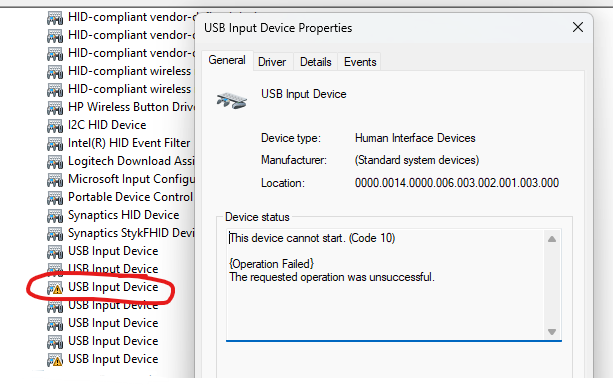Hello,
for a development project I need to make a USB device HID.
I started from the example project: \v2.6.0\zephyr\samples\subsys\usb\hid
so on version 2.6.0 of zephyr.
I have several things that I can't do from there... I need to do my own configuration.
I would like to be able to create my own device descriptor, with these interfaces.. but when i add
ow to remove the interface present in the device/class/hid/core.c file?
I would like to add my own interfaces..
thanks for help



